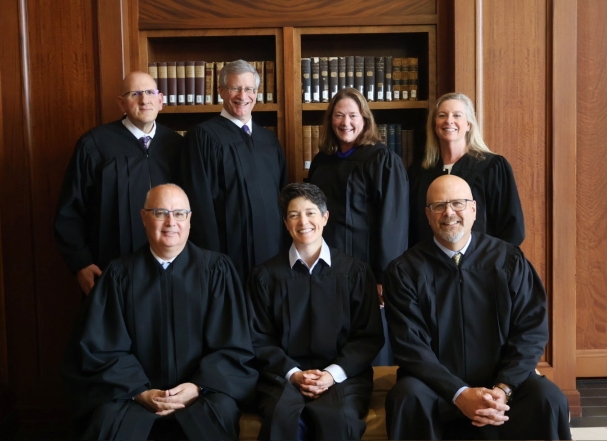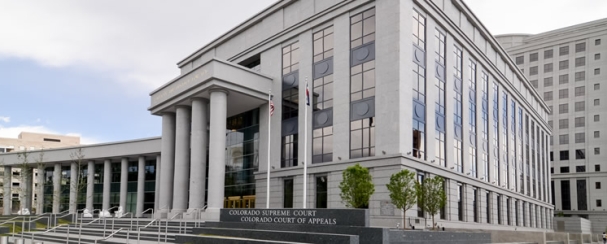About the Supreme Court
The Supreme Court Jurisdiction
Requests to review decisions of the Colorado Court of Appeals constitute a majority of the Supreme Court's filings. The Supreme Court also has direct appellate jurisdiction over cases in which a statute has been held to be unconstitutional, cases involving decisions of the Public Utilities Commission, writs of habeas corpus, cases involving adjudication of water rights, summary proceedings initiated under the Election Code, and prosecutorial appeals concerning search and seizure questions in pending criminal proceedings. All of these appeals are filed directly with the Supreme Court, and, in these cases bypass the Court of Appeals. The Supreme Court also has exclusive jurisdiction to promulgate rules governing practice and procedure in civil and criminal actions.
Colorado's attorneys are licensed and disciplined by the Supreme Court. The court's attorney regulation system, funded by attorney registration fees, polices the profession. In addition, the court oversees the State Court Administrator, Board of Continuing Legal Education, Board of Law Examiners, Commission on Judicial Discipline, and Unauthorized Practice of Law Committee.
Visiting the Supreme Court
Oral arguments in both the Colorado Supreme Court and the Colorado Court of Appeals are open to the public, and members of the public always are welcome to visit both courts, which are on the first, third, and fourth floors of the Ralph L. Carr Colorado Judicial Center.
 Colorado Judicial Branch
Colorado Judicial Branch


